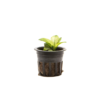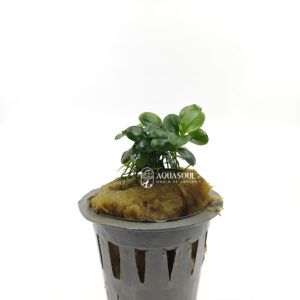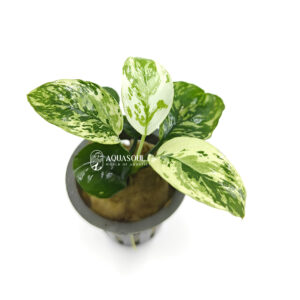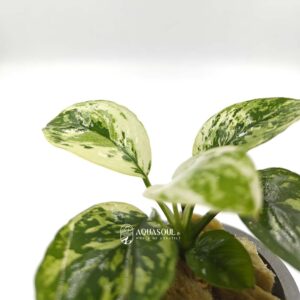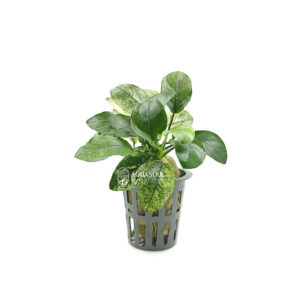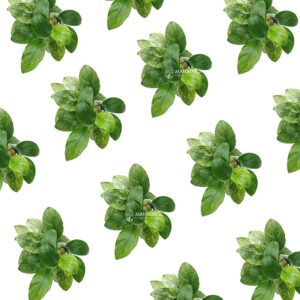Common Name: Anubias Chili Mini
Anubias Chili Mini is an extremely rare variant in the Anubias family that is highly sought after due to its small leaves. Anubias Chili Mini is smaller than some of the more commonly known Anubias variations such as Anubias Nana Petite. Anubias Chili Mini closely resembles Anubias Pangolino, another rare variant of Anubias. However, this Anubias plant’s small leaves resemble mini chili peppers, earning its name. Chili Mini is very easy to care for in a planted aquarium and does not require much to do well in a planted tank. Like all Anubias plants, Anubias Chili Mini is a slow grower, so patience is a must.
Anubias Chili Mini will grow best when the rhizome is attached to a hard surface such as aquarium driftwood or stones. Anubias species have low to medium light requirements and will benefit from regular fertilization along with CO2 injection. While CO2 is not necessary, it will promote faster growth and more robust leaves. Since Anubias are slow growers, its leaves are susceptible to algae growth if placed under lighting that is too strong or if maintenance is not consistent.
Propagation is easy and straightforward. To propagate Anubias, simply cut or pull apart rhizomes to be replanted or reattached. Make sure to keep the rhizomes above your substrate or the plant has the potential to rot.
Anubias Chili Mini Specifications
Please note, all stats are provided as general guidelines. Factors such as height, size and overall success can vary depending on care and environment.
- Family name: Araceae
- Origin: Africa
- Height: 1-2″
- Care: Easy
- Lighting: Low to medium
- CO2: Not required, but recommended
- Propagation: Separate at rhizome
- Growth rate: Slow
Notes:
- Anubias are strong plants that can thrive in a variety of environments.
- Anubias are epiphytic. These hardy epiphytes can be planted above the substrate or attached to hardscape.
- Burying the rhizome, will cause the plant to melt and die.
- Please be sure to remove this plant from its pot.
- Do not make drastic changes to the aquarium. Unstable parameters will result in melt of the aquarium plant.
- CO2 injection and quality aquarium soil will yield better growth.
Related products
Anubias and Bucephalandra
Anubias and Bucephalandra
Anubias and Bucephalandra
Anubias and Bucephalandra
Anubias and Bucephalandra
Anubias and Bucephalandra
Anubias and Bucephalandra
Anubias and Bucephalandra






